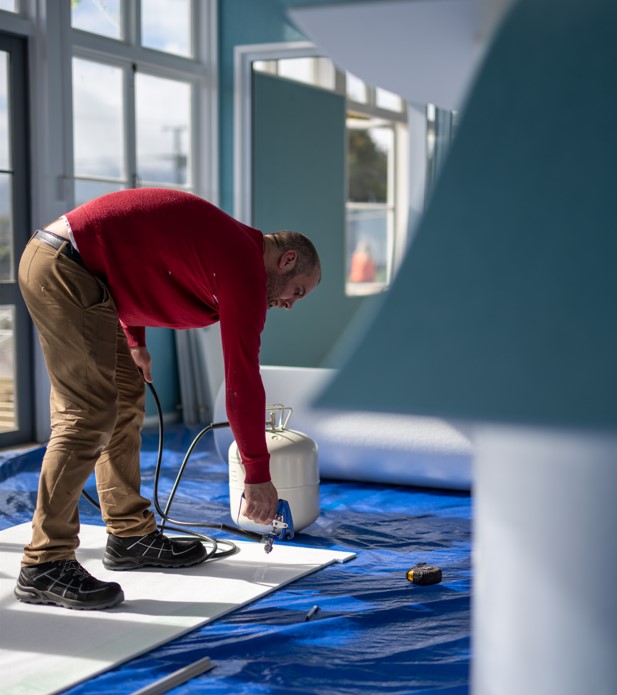
Flooring
Level 4
1st year $964-$1,642
2nd+ years $964
Professional flooring specialists provide durable, safe and quality coverings for residential and commercial locations.

What flooring professionals do?
Flooring professionals work on new building projects or existing structures where they install and replace/renew flooring. They require a sound understanding of how to prepare surfaces, what products to use and how to install various floor coverings, such as carpet, vinyl, resin, synthetic, and timber.
Working in a flooring retail store requires an understanding of flooring planning and design.

It's not just a job, it's a professional career
Flooring isn't just a job – it's a professional career. By doing an apprenticeship and getting qualified, you're setting yourself up for ongoing employment as a well-paid tradesperson. You’ll also open up opportunities to do further study in supervision or site management, go to university, or start a business and train your own apprentices.
Flooring qualifications
BCITO manages flooring apprenticeships. In your apprenticeship you will be working towards one of the following Level 4 qualifications:
- New Zealand Certificate in Flooring Installation
- New Zealand Certificate in Timber and Composite Flooring
- New Zealand Certificate in Flooring Planning and Design
- New Zealand Certificate in Flooring Surface Preparation
You’ll work under an experienced flooring professional who'll provide on-job coaching and support throughout your apprenticeship. You'll also receive the guidance of a BCITO training advisor.
Qualifications may require you to attend block courses for assessment. These come at an additional cost, see pricing here.
There are no strict entry requirements, although it will help if you have good maths and English skills – you need to be able to understand instructions and work out measurements, quantities and angles.
Apprentice Fees
Subject
First Year
Remaining Years
Flooring Installation
choose strand(s)
$964
$964
Multiple strands
- Bonded Carpet
- Conventional Carpet
- Commercial Resilient Flooring
- Residential Resilient Flooring
no extra charge
Flooring Surface Preparation
choose strand(s)
$1,176
$964
Multiple strands
- Concrete Polishing (not yet available)
- Mechanical Preparation
- Moisture Treatment
- Underlayment Systems
no extra charge
Optional strand
- Topical Coatings (not yet available)
$283
Flooring Planning and Design
$1,642
$964
Optional strands
- Site Assessment
- Estimation
no extra charge
Timber and Composite Flooring
choose strand(s)
$964
$964
Multiple strands
- Bonded Installation
- Fine Floor Sand and Finishes
no extra charge

